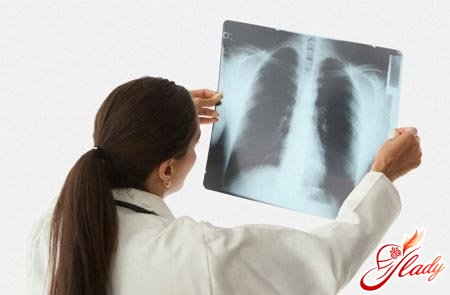 I'm tormented by endless sore throats... It hurts all the timethroat and it hurts to swallow. And the tonsils are to blame, or rather their inflammation. What to do, maybe remove the tonsils and get rid of the constant fever and endless sick leave? Remove or not? After all, it's so simple, but then there will be no tonsillitis and throat problems. But is that true?
I'm tormented by endless sore throats... It hurts all the timethroat and it hurts to swallow. And the tonsils are to blame, or rather their inflammation. What to do, maybe remove the tonsils and get rid of the constant fever and endless sick leave? Remove or not? After all, it's so simple, but then there will be no tonsillitis and throat problems. But is that true?
What are tonsils and why are they needed?
Tonsils are connective lymphoid tissuetissue that is completely permeated with lymphocytes and cells that are the main and important part of the body's immune system (macrophages). There are six tonsils in our body: pharyngeal, palatine, lingual and tubal. The palatine tonsils also have a hematopoietic function; lymphocytes (white blood cells) are formed in clusters of lymphoid tissue, which are the main basis of immunity. The most important part of our immune system is the tonsils, the removal of which does not have a very good effect on the body as a whole. Experts say that the tonsils (or adenoids) are so important for the body that even a half-dead and decayed tonsil produces more immunoglobulin than the rest of the immune system. Due to the porous structure of the tonsils, all pathogenic microbes, when trying to penetrate the body, end up surrounded by cells of the immune system and are destroyed. Adenoids are a serious barrier to infections, and if the body itself cannot cope with the disease, then inflammation of the tonsils begins.
When is the operation necessary?
In the recent Soviet past, removaladenoids was a completely routine operation. And in America, almost all children under six years of age had their adenoids (or tonsils) removed. Nowadays, adenoids are removed much less often, because such an operation is associated with a number of unpleasant consequences for the body. Modern doctors recommend removing tonsils only in a few cases:
- If a person develops an angina (acute inflammation of the tonsils) more than four times a year, and the disease runs with a high temperature and a general weakness of the body.
- The emergence of chronic tonsillitis on the background of persistent angina (irreversible changes in the work of the tonsils and their constant inflammation.)
- Development against this background of purulent abscesses (abscesses) affecting the larynx region.
- When there is unconscious closure of the airways with large tonsils (snoring in a dream, which is the reason for a short-term stoppage of breathing).
- Sharp weakening of immunity.
Chronic tonsillitis, which is one ofThe main reasons for performing tonsillectomy are pathological conditions of the body. The natural functions of the tonsils to protect against infections are lost during this disease, and the tonsils themselves become a source of inflammatory processes. Progressive chronic tonsillitis can provoke heart disease, joint disease, and disrupt all the body's defenses. It can also cause rheumatism and severe kidney disease. But early tonsillitis is well treated with conservative methods (rinsing, lubrication, physiotherapy, etc.). If chronic tonsillitis treatment is ineffective, the inflammatory process goes too far and the damaged tonsils no longer contain healthy lymphoid tissue. In this case, doctors recommend surgical intervention. An operation to completely or partially remove the palatine adenoids is called tonsillotomy.
How is the removal of glands?
Nowadays, tonsil removal is performed using gentle methods and modern equipment.
Immediately after the operation the patient is placed onright side, an ice pack is placed on the neck (the cold helps the blood vessels to narrow and prevents bleeding). The next few days, the patient takes a course of antibiotics to prevent possible infection. On the first postoperative day, you are allowed to drink a few sips of water, in the following days you will have to limit yourself to pureed and liquid food in a cold form. After five days, the wound surface heals after tonsil removal. Contraindications to surgery:
- Presence of blood diseases (deterioration of coagulation).
- Heart problems (angina and tachycardia).
- Kidney diseases.
- Diabetes.
- Severe forms of hypertension.
- Active form of tuberculosis.
- Acute infectious diseases.
- Pregnancy in the third trimester (after six months).
I am categorically against tonsil removal surgery.cardiologists and gynecologists (in cases with women) act. The body is greatly weakened by the loss of tonsils. Consequences and complications of such an operation^ After tonsillectomy (any operations, even the most gentle ones) complications may begin.
- The organism is now less protected from pathogenic microorganisms after the removal of the tonsils, the immunity weakens greatly.
- The tissues of the pharynx and larynx experience severe stress, which manifests itself as a sharp, constant sore throat.
- Possibility of dangerous bleeding.
- The spread of infection to the cervical lymph nodes (lymphadenitis). This complication subsides a week after the operation for tonsils for their removal.
To delete or not?
This issue should be resolved by a qualified andexperienced doctor. The decision to operate is made only as a last resort, when other treatments do not help. In this case, the harm and danger of chronic tonsillitis outweigh the complications after the operation. Removing your adenoids is the most extreme measure. If a person suffering from chronic tonsillitis begins to have problems with internal organs, then, without a doubt, an operation to remove the tonsils is necessary. Tonsillectomy is performed only when the palatine tonsils begin to work against their own body. In any case, there are strong antibiotics in modern pharmacology. We have numerous folk remedies, homeopathy. Our health and well-being of the body largely depend on its integrity. To remove or not to remove the tonsils? First of all, try to treat them and not let things slide. Harden your body, take vitamin complexes in the off-season. Any operation is a serious change in the body and it is better to do without surgical measures. By the way, removing tonsils in adults is much more difficult than in children. An adult organism is rarely completely healthy. Take care of yourself and don't get sick! We recommend reading:









